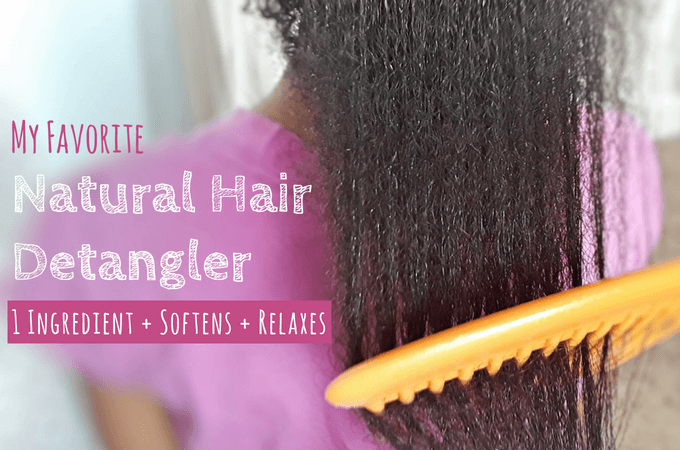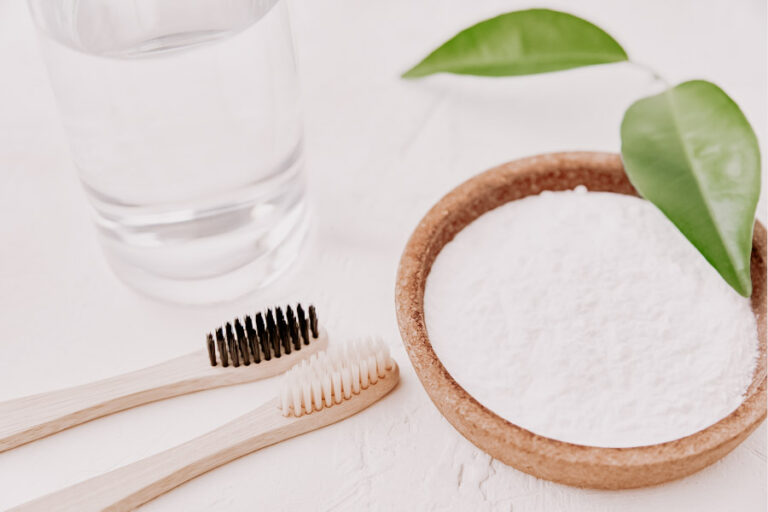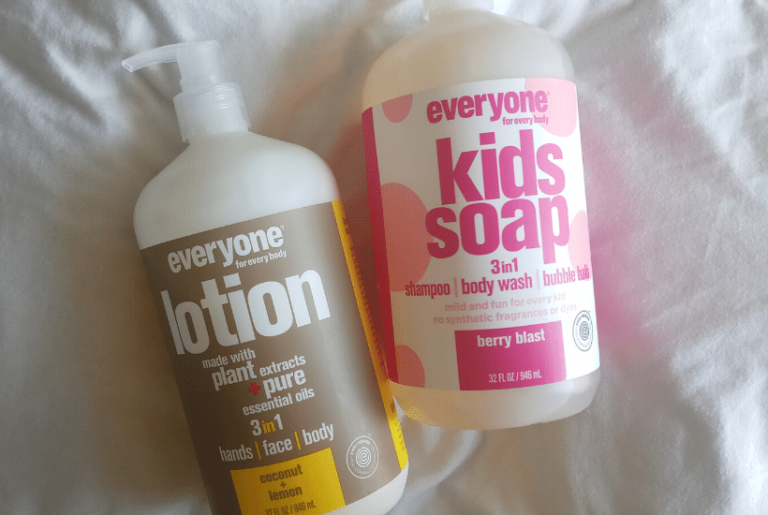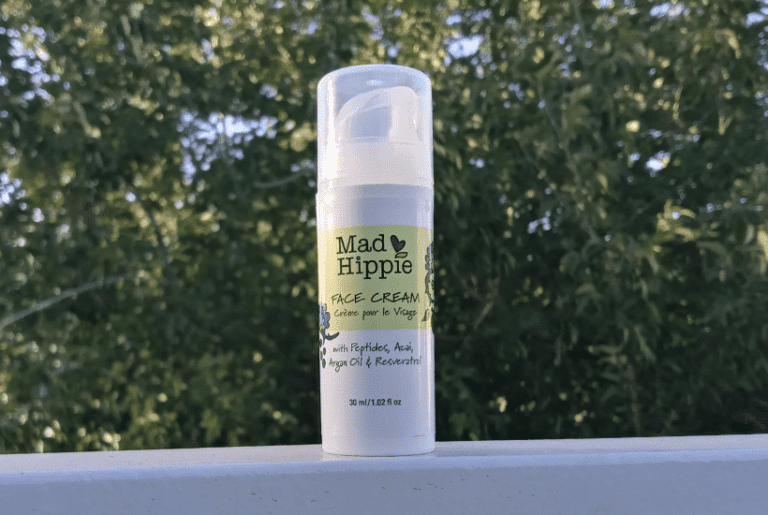Is Coconut Oil Good For Your Hair?

Coconut oil’s popularity has exploded in recent years, and it’s easy to see why. It smells good, tastes great, and can be used in cooking and baking as well as a skincare product. But is coconut oil good for your hair? And if so, what are the best ways to use it?
First, let’s discuss what coconut oil is and the different types to choose from.
What is coconut oil?
Coconut oil is derived from the meat of mature coconuts. It’s extracted by cold-pressing or centrifuge, and it has a long shelf life. Coconut oil is solid at room temperature but melts into liquid when heated.
It’s composed of medium-chain fatty acids (MCFAs), which get absorbed differently than other types of fats found in most foods we eat. These MCFAs are metabolized differently because they’re smaller than other dietary fats; therefore, they’re considered easier to digest than larger molecules like omega 6s or 9s.[1] They also produce fewer harmful cholesterol levels and higher HDL cholesterol levels in the body.[2]
You’ll find coconut oil used for cooking and baking as well as for skin and hair care products due to its high MCFA content.
What is unrefined or virgin coconut oil?
Unrefined coconut oil, often called virgin coconut oil, is made from fresh coconuts. It has a strong coconut smell and taste. Unrefined or virgin coconut oil may be more expensive than refined coconut oils because it’s considered to be more pure—it hasn’t been processed as much and therefore retains the full benefits of its nutrients and antioxidants.
Coconut oil has been a staple for my family for years. I only purchase unrefined coconut oil and mostly use Vita Coco Extra Virgin Coconut Oil and Spectrum Organic Virgin Coconut Oil mainly for food and body care, although in the past I’ve used it often for hair care.
What is refined coconut oil?
Refined coconut oil is made from copra, the dried kernel of the coconut. The oil is extracted from copra by pressing and heating it. Refined oils are usually bleached, deodorized, and refined with chemicals to remove contaminants.
Refined coconut oil has a long shelf life and is less expensive than virgin coconut oils; however, they often contain chemicals that can irritate your skin and scalp. They are also used in cooking or cosmetics because they do not smell like coconuts (cleaned up).
Is coconut oil good for your hair?
Coconut oil is often used as a natural alternative to other hair care products because it can be used as a moisturizer and can help repair damaged hair.
Coconut oil is an excellent moisturizer. It has a high concentration of fats, which are essential for keeping skin and hair healthy. This means that coconut oil can be a very effective alternative to commercial shampoos and conditioners when it comes to preventing dryness or flaking on your scalp, which may result in dandruff.
While some people use the product on its own, others combine it with their shampoo or conditioner before applying them directly onto their head; this method provides more balance between hydration and cleansing power that helps prevent buildup from occurring in the first place.
Coconut oil helps reduce protein loss caused by excessive washing with harsh detergents or chemical treatments (such as bleaches). Hair tends to become brittle due to years spent being exposed without proper care—this makes them more susceptible to breakage.
Coconut oil has been used for centuries as a hair treatment in tropical countries. Some people say it’s great for your hair, while others warn against using it too often. Coconut oil contains vitamins and antioxidants that can help protect your hair from damage, but there’s also evidence that too much coconut oil may cause buildup and weigh down your hair.
Related Content
Is Extra Virgin Olive Oil Good For You?
Every Product I use for my natural Body Care Routine
My Favorite natural hair Detangler | 1 Ingredient!
Is unrefined coconut oil better for your hair than refined coconut oil?
The short answer is yes, unrefined coconut oil is better for the general health of your hair. Refined coconut oil has had all the natural oils removed and then replaced with chemicals to give it a long shelf life. Refined coconut oils will often have preservatives added to extend their storage time and prevent rancidity. The result of this refining process is a product that is pure white in color or clear in liquid form.
Unrefined coconuts are typically harvested from large plantations and shipped directly to processing plants where they are shredded, pressed, and filtered before being sold as an edible product or refined into various types of coconut oil products such as soaps or shampoos.
Since there are no chemical additives added during this process, you can expect an unrefined coconut oil shampoo to have more natural ingredients than a shampoo made from refined products like palm kernel or soybean oils which may contain ethoxylated ingredients (commonly used in detergents) along with other potentially harmful chemicals such as sodium laureth sulfate (SLS).
Key Points
- Unrefined coconut oil is more natural and retains more nutrients, antioxidants, and other beneficial compounds.
- The scent of unrefined coconut oil may be stronger than refined coconut oils because it hasn’t been stripped of its natural fragrance during processing.
- It has the highest levels of vitamins, minerals, essential fatty acids — especially lauric acid — compared to refined coconut oil.
Harsh chemicals can be damaging to your hair.
Harsh chemicals can be damaging to your hair. They strip away its natural oils, leaving your strands dry and brittle. They also cause it to become dull and frizzy. If you have colored or bleached hair, chemicals will make it even more dry and frizzy; this is because the chemicals don’t just remove the color from your hair but also from the ends which are very susceptible to damage.
Coconut oil can help reduce protein loss.
Coconut oil can also be used to help reduce protein loss. Protein loss is a common cause of hair thinning and breakage, so using coconut oil can help keep your hair healthy and strong.
Coconut oil is an emollient which means it helps your skin retain moisture. This makes it a great choice for moisturizing dry hair! The oils present in coconut oil are able to penetrate the hair shaft while also providing shine and softness to your locks.
Coconut oil is naturally antibacterial.
The high lauric acid content of coconut oil makes it a good antibacterial. In fact, it has such a high amount of lauric acid that it can actually kill off bacteria and fungi on its own. As mentioned above, coconut oil has been used for centuries as a natural remedy for people suffering from skin infections like ringworm, athlete’s foot, or even dandruff or dry scalp (4).
Lauric acid is also known to be an antifungal agent. According to one study published in the Journal of Lipid Research in 2005, using coconut oil as an ingredient in topical creams reduced the occurrence of fungal infections by 50 percent (5).
Coconut oil has fewer harmful side effects than dandruff shampoos.
Coconut oil may be a good alternative to other treatments for dandruff. Coconut oil is less likely to cause dandruff than many of the popular dandruff shampoos on the market.
- Coconut oil helps prevent and treat dry scalp, which can lead to irritation and itchiness, which are symptoms of dandruff.
- The fatty acids in coconut oil help moisturize the skin and hair so that they do not get too dry or greasy after washing them with shampoo (or water).
Coconut oil may help heal damaged skin and hair follicles.
Coconut oil is an excellent moisturizer, and it can help heal damaged skin and hair follicles. Coconut oil has a high concentration of lauric acid and capric acid, which are both natural antibacterial agents that can reduce the risk of getting acne.
Coconut oil can also help reduce protein loss in your hair due to its anti-inflammatory properties—if you suffer from dryness, frizziness, or split ends then this might be a great option for you!
Virgin coconut oil is more likely to retain more nutrients and antioxidants.
Virgin coconut oil, which is more likely to retain more nutrients and antioxidants, has a stronger aroma than refined coconut oil. The reason for this is that virgin coconut oil has not gone through the deodorization process that refined coconut oil has undergone.
You can tell whether your coconut oil is refined or virgin by looking at the label of your product; if you see words like “expeller pressed” or “refined” on the label, then it’s likely that you’re working with a refined version of this ingredient—and if it doesn’t have any labels at all, then chances are it may contain additives.
If you are looking for an all-natural treatment for dry, damaged hair, then coconut oil may be a good option for you.
If you are looking for an all-natural treatment for dry, damaged hair, then coconut oil may be a good option for you. It is a natural moisturizer and conditioner that can help to hydrate the strands of your hair. Additionally, it has some other benefits including:
- A deep conditioning treatment – Coconut oil penetrates your hair shafts to provide long-lasting moisture without making your hair greasy. This makes it a great option if you want to restore softness and elasticity to dull locks.
- Hair growth stimulation – The vitamins found in coconut oil can stimulate the growth of new follicles on your scalp which will result in thicker tresses overall.
Conclusion
If you are looking for an all-natural treatment for dry, damaged hair, then coconut oil may be a good option for you. It helps keep your hair moisturized and hydrated so that it can grow longer and stronger. There’s no reason why you shouldn’t try this as an alternative to chemical-filled products that contain harsh chemicals like sulfates or silicones which can damage your hair over time.
Resources
https://pubmed.ncbi.nlm.nih.gov/12715094/
https://pubmed.ncbi.nlm.nih.gov/30395784/
https://pubmed.ncbi.nlm.nih.gov/12715094/
https://pubmed.ncbi.nlm.nih.gov/19343362/
https://www.ncbi.nlm.nih.gov/pmc/articles/PMC7276157/
https://www.ncbi.nlm.nih.gov/pmc/articles/PMC8012655/





